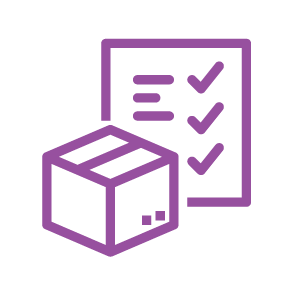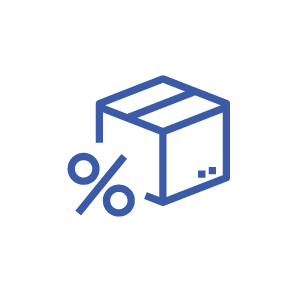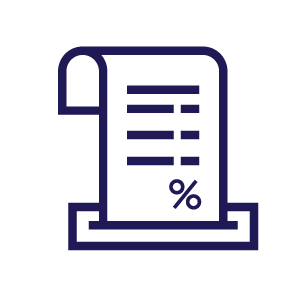If you have imported goods in 2021, are you ready for 1st January 2022 and beyond?
International Trade Specialist, Frances Fawcett works with importers and exporters and there is cause for concern. Here, she explains why.
Before I get into the guts of this article, let me share something. It’s very rare that those of us who write either occasionally or professionally can reuse an article. We might take ideas and develop them, but complete reuse is almost unheard of. However, the vast majority of this article is exactly the same as it was in March 2021. There’s a new deadline and I’ve brought things up to date. But all the rest is as it was before.
The story so far…
The impact of Brexit and the end of the transition period on 31st December 2020 has been widely felt and widely reported. Many of the niggles and challenges that we all saw in January 2021 have calmed down and goods are flowing more smoothly. It has taken some time, it has taken all parties getting to grips with new processes and, unfortunately, led to some businesses discovering new costs to doing business with EU suppliers and customers. Some of these are direct costs, other costs are in terms of time and administration. However, most regular exporters will probably have reached an understanding of the processes that are now required.
I’d like to say that importers have reached the same clarity, but I fear not.
This is because, whether they realise it or not, they haven’t been exposed to some of the realities because of schemes in place to make things easier. Naturally we welcome these schemes, but they can sometimes leave things hidden and it’s critical that importers are aware.
Delayed import declarations
What is it?
Recognising that considerable changes might be needed post-Brexit and the end of the transition period, HMRC announced that importers could defer import declarations. All goods coming into the UK from overseas must enter the country with an import declaration. This was already the case for imports from outside of the EU and it is now also true for imports from the EU from 1st January 2021. In July of last year (2020), HMRC announced that UK importers could defer declarations until 1st July 2021. This was welcome news and offered a period of 6 months before declarations would be required. However, traders are obliged to record goods in their own records so they can provide the information to HMRC later. There is also an obligation to account for duties and VAT, but more on that later.
Later in 2021, HMRC changed the deadline from 1st July to 175 days after the date of the import. That meant that we didn’t all hit a wall on 1st July, but rather that there was a rolling deadline. So, if you imported in, for example, May, you had until late October/November (175 days later) to ensure a declaration had been completed. The 175 day window is gone now and we are back to a wall on 1st January 2022. Declarations are needed for past imports, and anything imported from the start of 2022.
What do I need to do about it?
For all goods that you have imported from the EU since 1st January 2021:
- Has an import declaration been completed?
- Transporters sometimes submit declarations if asked as part of the service they provide so you will need to find out if this was the case. If no one asked them to, they almost certainly didn’t.
- If an import declaration hasn’t been completed, ensure you have all the records you need about the goods you have imported.
- Was the import declaration correct?
- You must check information such as goods value, Commodity Codes and Country of Origin because these are used to calculate the import fees due, and you will want them to be calculated accurately.
It is possible to submit your own declarations, but most businesses use someone else to deal with customs for them. Customs Agents are extremely busy post-Brexit but fortunately this is a service provided by most Chambers Of Commerce, so you may wish to start there.
Duties
What is it?
Duties are charges made on goods as they are traded around the world. You will also find them referred to as “tariffs”. Be wary of terms like “costs” and “fees” because that might refer to duties but might also refer to VAT or the amounts charged by transporters for the processes they carry out.
“But wait,” I hear you say; “The Trade and Cooperation Agreement (TCA) that the UK signed with the EU means that goods are all tariff free, aren’t they?”
It’s important to understand that the tariff free trade covered by the TCA only applies to the goods that each party produces. In other words, if the goods that you have imported from the EU are of EU origin, you’re home and dry and no duties will be payable.
But if you have imported goods of other origin – even if they came from a supplier in the EU – they may attract duties that you will need to pay.
What do I need to do about it?
For all goods that you have imported from the EU since 1st January 2021:
- Check that you know the Country of Origin of the goods you have purchased.
- Your suppliers should include this on their invoices, but you must check. Not all EU businesses were ready for the end of the transition period so may not have updated their documents.
- You will also need to know the Commodity Code of the goods that you have imported.
- Again, you can check your supplier invoices, but you will also need to satisfy yourself that, if a Commodity Code is given, it is accurate. If none is given, you will need to determine the codes using the UK Trade Tariff.
- If you do discover that you now have duties to pay, consider opening a Duty Deferment Account with HMRC.
- Opening an account is free of charge and cheaper than using a transporters deferment account as no fees apply.
Postponed VAT Accounting
What is it?
Duties are not the only cost associated with importing. Import VAT is also payable on most goods that are imported.
HMRC announced a scheme at the end of last year called Postponed VAT Accounting (PVA) which enables businesses to account for their import VAT on their next VAT return rather than at the point of import. There is no application or approval process – it is simply a matter of telling your transporter that you are using PVA. Because of its ease, some transporters are assuming that businesses are using PVA and that is a natural assumption and eases the import process. Details of the import VAT is added to the trader’s VAT account and there is an online statement showing what should be included on the next VAT return.
Whilst the scheme is to be applauded and its ease of use an example of digital systems at their best, its slick operation may mean that traders do not know about their VAT liability.
What do I need to do about it?
For all goods that you have imported from the EU since 1st January 2021:
- Use the Commodity Code to verify whether import VAT applies.
- It does apply to most goods at 20%.
- Use THIS LINK to access your Postponed VAT import statement.
- You will need your normal Government Gateway user ID.
- Statements show postponed VAT unless customs declarations were delayed.
- Note that statements are only available for 6 months – make sure you download and retain them!
Import VAT payable in the UK can be recovered by VAT registered businesses so although there is an administrative process here, there may not be a cost to your business.
What could be lurking that I should be worried about?
Here are a couple of scenarios that illustrate how easily there could be some nasties lurking for importers:
Do you know if a declaration has been made on your import?
The Incoterms® rule determines whether you (the importer/buyer) or your supplier (the seller) are responsible for import procedures when goods arrive in the UK. Any rule other than DDP (Delivered Duty Paid) means that you, the buyer, are responsible. So, unless you are buying under DDP, you will need to make sure an import declaration is made.
I recently met a business with an EU supplier taking care of the whole shipment to their door, so they assumed that included the import declaration. The Incoterms® rule quoted was EXW which is not suitable for an international trade transaction and clearly wasn’t the correct rule as the buyer had organised none of the shipment. They therefore had no idea whether an import declaration had been completed and could probably assume it hadn’t.
Could import VAT be sitting waiting to be included on your next VAT return without you realising?
PVA works so seamlessly that many transporters are assuming traders are using it – why wouldn’t they? There could, therefore, be a host of transactions sitting on a monthly statement that you didn’t even know existed.
But surely someone will be catching this as the goods cross the border into the UK?
This is a very dangerous assumption and I have seen enough to know that isn’t the case. The UK has taken a “low touch” approach to ease the changes faced by businesses after the end of the transition period. That means that just because the goods have arrived as expected, you cannot assume that all the correct processes were followed.
Check your imports now!
when I originally wrote this in March 2021, there was plenty of time to get things in order. But as I write this update in December, there is very little time between now and the end of the easement, so it’s just jumped to the top of your priority list.
You will need to put in place a proactive approach to managing your imports. We’ve helped lots of businesses do that and some guidance is here: Why every importer must pro-actively manage their imports
Can we help you?
Of course – we can provide guidance bespoke to your business to help you navigate the realities of Brexit and we can tell you about grant funding that is available. This could mean that there is no cost to your business to obtain our training and support. We look forward to helping you!






